Every Xebra E-Commerce site is governed by a set of HTML pages. “Out of the box”, these pages are set and do not require any adjustments. However, you can create your own HTML configuration and manipulate the HTML within each page to achieve aesthetics or functions beyond the basic.
To create an HTML Configuration, GO > E-Commerce > Actions > HTML Setup
Commands > New
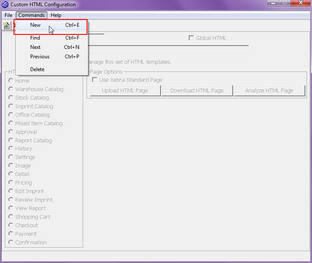
| • | New Configuration Based on Standard – Initiates a new HTML configuration file based on the “out of the box” version. |

| • | Copy From Existing Configuration – Allows you to start a new configuration based on a previously created version. You will need to indicate the HTML Configuration Code that you wish to copy from before proceeding. |

| • | New Code – Assign a code to the configuration you are creating. (maximum 9 characters) |
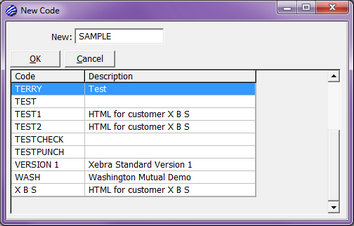
| • | Description – Each configuration should be given a description outlining its purpose or use. |
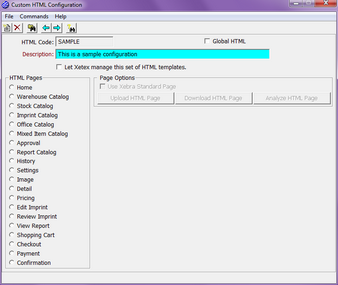
| • | Global HTML – By default, Xebra will use the basic “out of the box” configuration for all new E-Commerce sites. Selecting Global HTML on a configuration sets that configuration as the default for all future sites and any sites that have not had any specific HTML Configuration indicated. Note: Only one HTML Configuration can be set as Global. |

| • | HTML Pages – Lists all page files that make up a complete E-Commerce site. Select the page for which you would like to manage or change the HTML. |
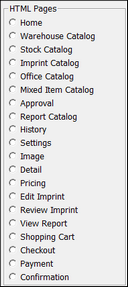
| • | Page Options |
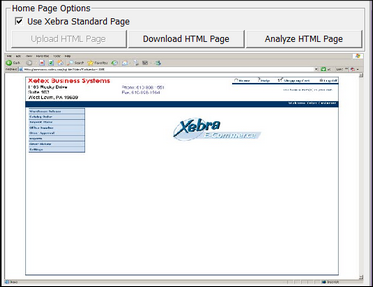
| • | Use Xebra Standard Page – When checked, indicates that the standard, “out of the box” HTML is being used for the selected page. Unchecking this option enables the Upload HTML Page function, allowing you to upload your own manipulated HTML file. |
| • | Upload HTML Page – Used to upload an HTML file from your workstation. Typically this would be an HTML file that originated in Xebra but was then manipulated by you. |
| • | Download HTML Page – Used to download the HTML file used to govern the selected page. This is the starting point for manipulating HTML files on your own. |
| • | Analyze HTML Page – Used to compare the current HTML file to the standard set. This will indicate missing or misplaced sections in the HTML and identify potential errors. Used by HTML developers to analyze and diagnose custom HTML files. |